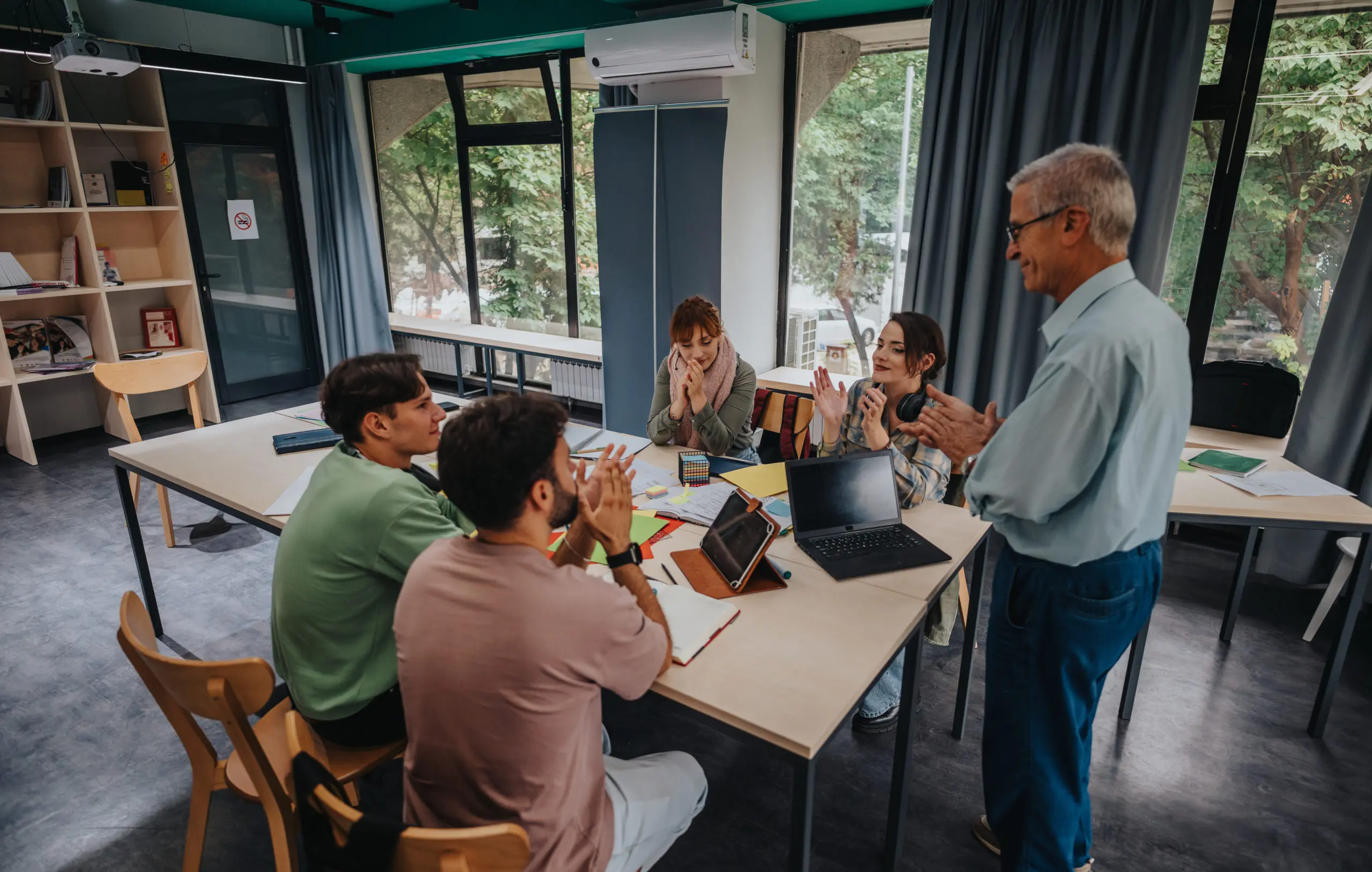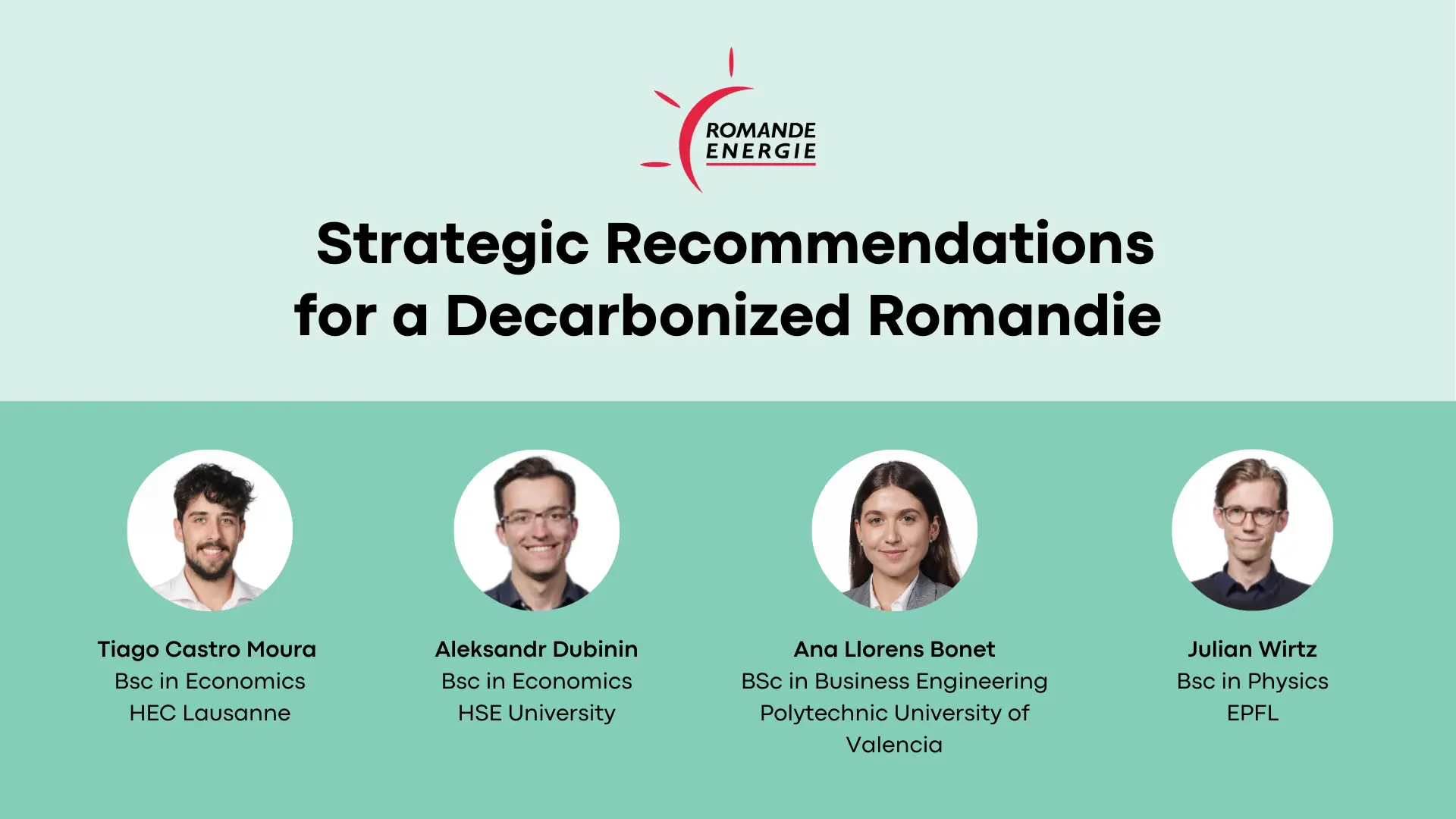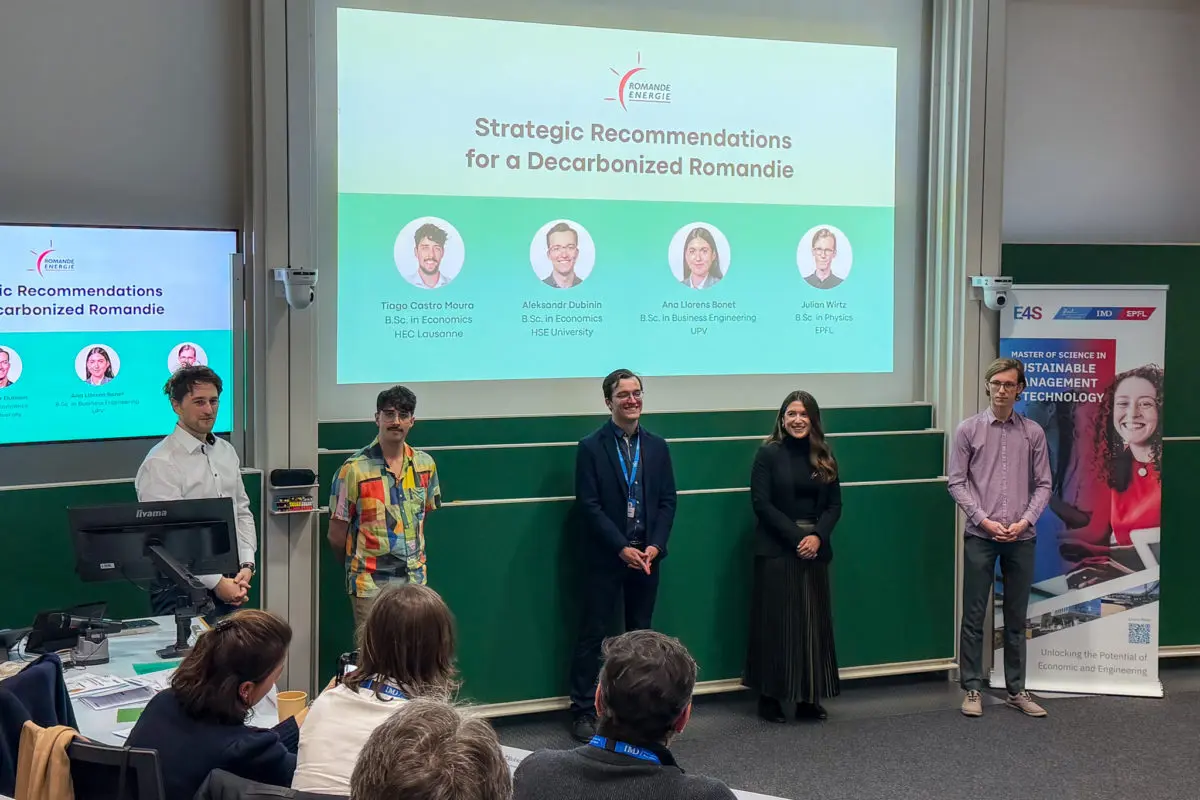
Romande Energie Services: Towards a Decarbonized Romandie: A Strategic Plan
As part of their Master's degree in Sustainable Management and Technology, students work on a sustainability challenge provided by a company to propose new perspectives or solutions that can have the potential to transform an industry or societal practice.

Building renovation is a promising way to reduce Switzerland’s emissions. To help Romande Energie Services on their mission to use this lever, this project conducted research and issued recommendations on three main pillars: integrating sustainability into RES’ company culture, exploring innovative product and supplier-level procurement practices and proposing strategic performance measurement, as well as suggesting a new analytical tool and proactive communication with potential customers.
The synergies between these recommendations were then leveraged in a strategic 5-year plan for Romande Energie Services.
Romande Energie Services – Towards a Decarbonized Romandie: A Strategic Plan
Switzerland is at a critical juncture in its efforts to combat climate change, with buildings contributing to one third of the nation’s greenhouse gas emissions. As a company involved in building renovation, Romande Energie Services plays a pivotal role in driving the decarbonization of the Romandie region.
In this context, the three-months long collaboration between our student team and the employees of Romande Energie Services (RES) Vaud led to the development of a strategic plan to enhance the company’s sustainability performance.
At the beginning of the project stood an exploratory phase, in which several meetings were held and internal documents were read to assess the current state of affairs in terms of sustainability at RES. The meetings included Florence Schmidt (head of sustainability at Romande Energie), Philippe Chollet (responsible for innovation and new technologies), as well as several blue and white collar workers that kindly shared their insights. The result of this process were three pillars that were deemed to have the highest potential for more sustainability at RES:
First, a series of qualitative interviews were conducted to assess the integration of sustainability in RES’ organisational culture. The insights of these interviews are synthesised in a separate report called Sustainability in RES Vaud’s company culture – detailed interview analysis. The main learnings of this process were two-fold: On one hand, they highlighted the need to foster organisational learning on sustainability and the establishment of sustainability knowledge management. On the other hand, they brought to light ways in which the personal role of employees as actors of RES’ transition could be strengthened, through workshops and the development of a “marche à suivre”.
Second, our analysis of procurement and performance showed that collaborating with key industry players or adopting more standarized frameworks for CSR assessment would streamline evaluations and enhance supplier engagement. Emphasizing environmental performance in scoring systems and integrating product-level sustainability, such as EPD requirements, aligns procurement with RES’s decarbonization goals. These measures collectively improve procurement efficiency, strengthen supplier collaboration, and take Romande Energie Services closed to the achievement of their mission.
The last pillar, market orientation, outlines ways in which RES could more proactively reach out to potential clients, in order to advance the company’s decarbonization efforts. On one hand, we propose a new analytical tool that will help RES to identify these potential customers more effectively. On the other hand, it leverages social incentives and holistic sustainability decisionmaking tools to accelerate decarbonization.
These recommendations culminated in a strategic 5-year plan that leverages the synergies between them. This plan illustrates how the recommendations could be combined to improve RES’ sustainability culture, their procurement and performance measurement, as well as to adopt more market orientation to accelerate the decarbonization of the Romandie.
Students: Ana Llorens Bonet, Tiago Castro Moura, Aleksandr Dubinin and Julian Wirtz
Company’s supervisors: John Epars and Philippe Chollet from Romande Energie Services
Academic supervisor and Transformative Projects’ lead: Samuel Wicki
